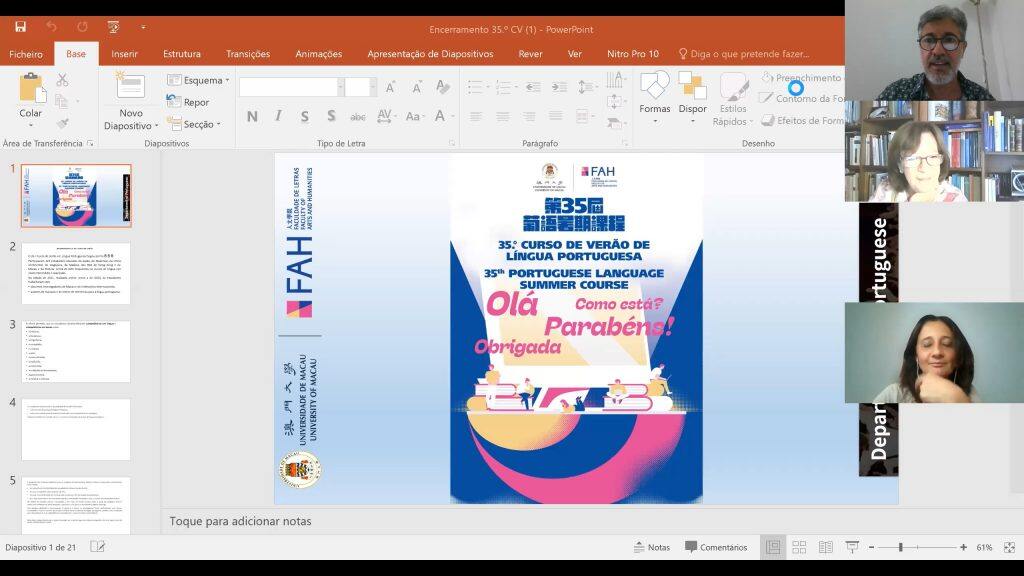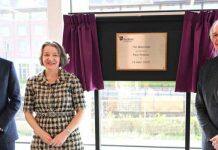The 35th Portuguese Language Summer Course, organised by the University of Macau (UM) Department of Portuguese, has ended with success on 23 July. This year’s summer course attracted 123 students from Japan, Myanmar, mainland China, Singapore, Malaysia, Poland, Hong Kong, and Macao. Approximately 60 per cent of the participants attended language courses at intermediate and advanced levels.


This year’s course was held online and was taught by Portuguese professors, researchers, and authors of Portuguese textbooks and reference texts from Macao and overseas. The language courses consisted of 45 hours. Students also had the option of complementing their language courses with 15 hours of teacher-led self-study. Students in introductory and beginner level courses also had the option of attending up to 15 hours of theme-based courses, while those in intermediate and advanced level courses could attend up to 75 hours of theme-based courses. Most of the students achieved the required attendance rate, passed course assessment, and received the course certificate.
The language and culture courses greatly enhanced students’ language skills in areas such as history, literature, linguistics, taking Portuguese examinations as non-native speakers, society, film, art, communication, translation, economics, international relations, gastronomy, music, and dance. Students also visited places and organisations in Portuguese-speaking countries on a virtual basis, through which they were able to improve their Portuguese language skills.
The teaching materials in the areas of gastronomy, music, and dance were produced with the help of, among others, the Creative Media Laboratory in the Faculty of Social Sciences at UM, five Cape Verdean students, a recent UM graduate of Mozambican origin, chefs of the restaurants António and D’Ouro, the Macau House of Portugal band, and the Axé Capoeira Macau group. The Cinema and Society module received support from the producer David e Golias and João Maia, director of the film Variações. The courses were designed to let students experience new rhythms, sounds, and flavours, as well as reflect on Portuguese culture, thereby helping them to develop socio-cultural skills and cross-cultural awareness.
Source: University of Macau, Faculty of Arts and Humanities







































